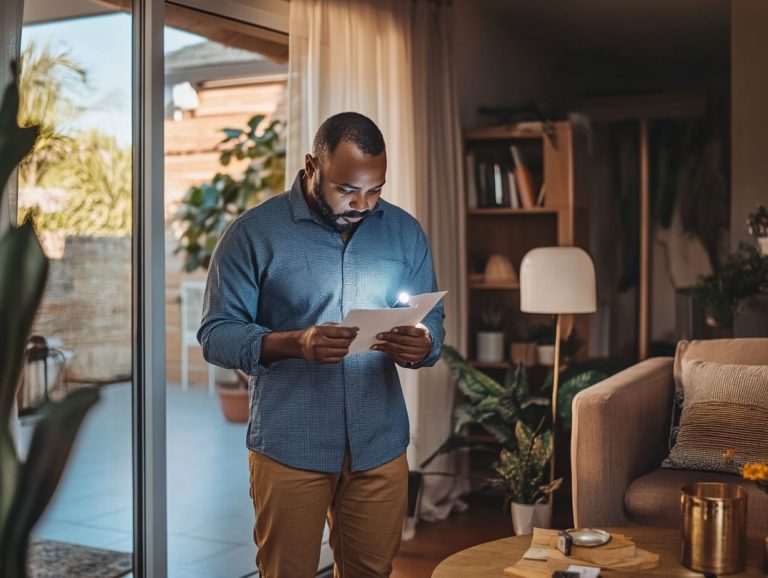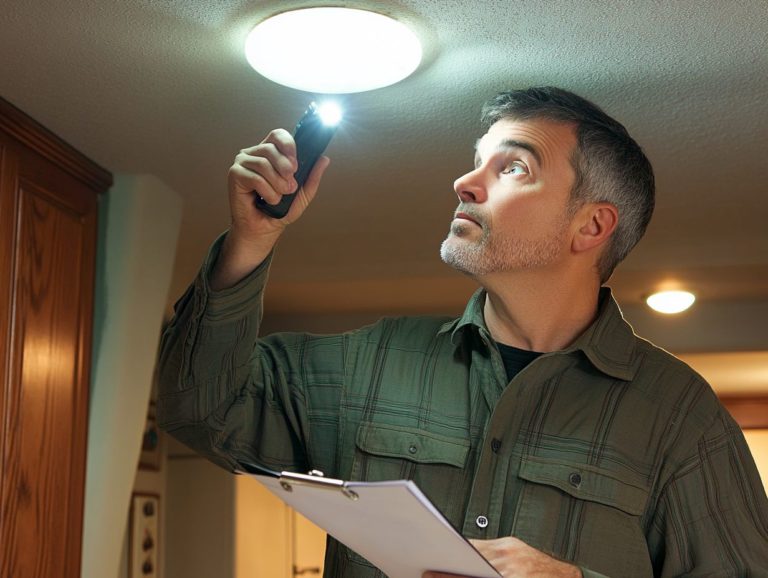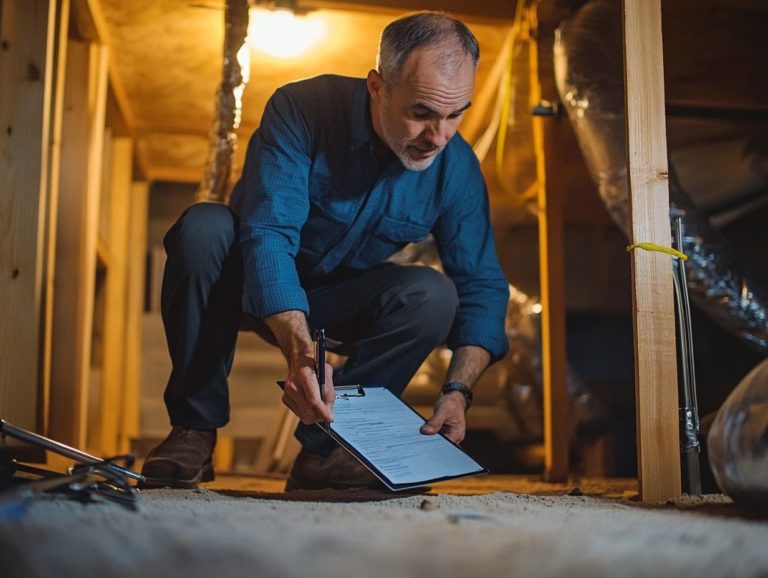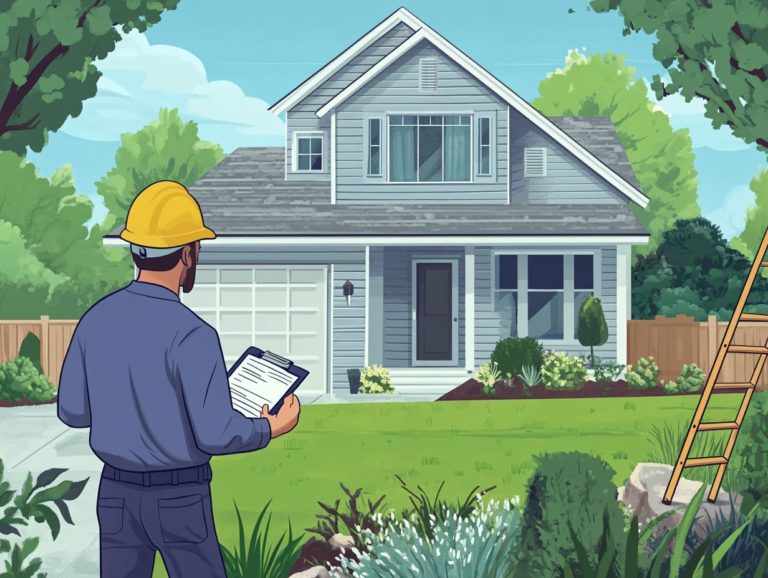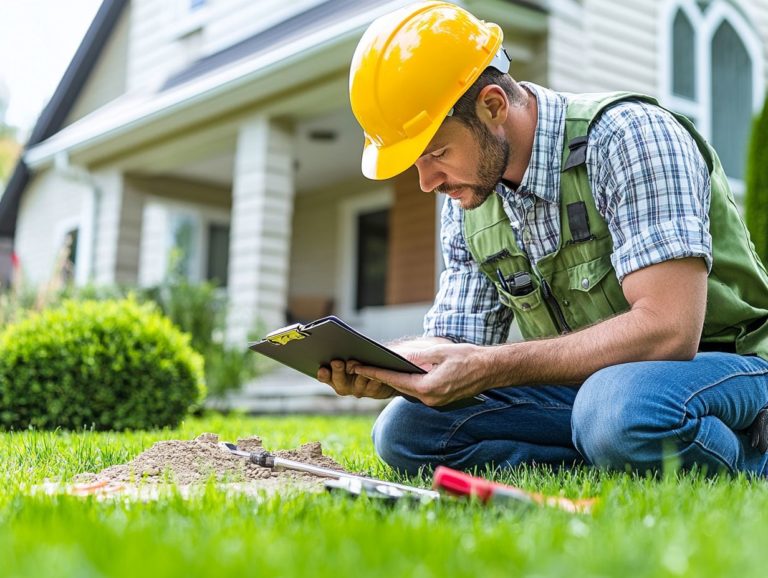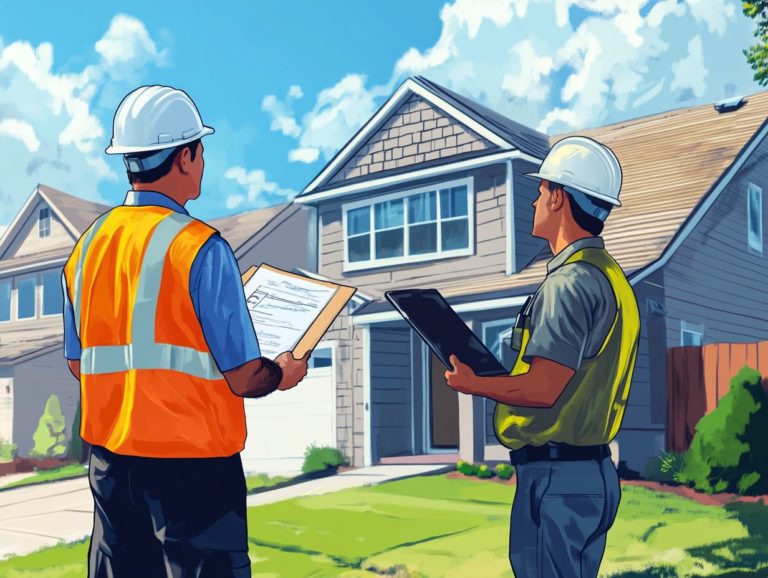How to Communicate with Your Home Inspector
Buying a home is an exciting adventure! Understanding the role of a home inspector is key to making the journey smoother.
A skilled inspector evaluates the property’s condition and finds potential issues, offering insights that are truly invaluable.
This guide will walk you through what to expect during the inspection, how to prepare effectively, and the key questions you should ask.
It will also discuss the importance of clear communication with your inspector and what steps to take afterward.
Are you ready to tackle your home inspection with confidence? Don t skip this crucial step! Let s dive into the essentials of your home inspection!
Contents
Key Takeaways:

Understand the role of a home inspector: They are trained professionals who assess the condition of a property to help buyers make informed decisions.
Prepare for the inspection: Clear access to all areas of the home, have important documents ready, and ask for a detailed report.
Communicate effectively during the inspection: Ask questions and provide feedback in a respectful and organized manner to get the most out of your home inspector’s expertise.
Understanding the Role of a Home Inspector
A home inspector serves a vital function in the home buying journey. They carefully check a property to uncover any safety hazards, significant defects, or even minor issues that could impact the property’s value and your expectations.
Their expertise not only enlightens you about the property’s condition but also fosters clear communication of inspection findings. This enables you during negotiations and guides your planning for necessary repairs.
What Does a Home Inspector Do?
A home inspector carefully checks the physical condition of a property, producing a detailed inspection report that encapsulates their observations and findings.
This thorough process entails a careful examination of critical systems within the home, such as plumbing, electrical wiring, and the overall strength and stability of the building. By assessing these essential elements, the inspector helps you as a potential buyer to make informed decisions regarding the property’s condition.
The importance of the inspection report in real estate transactions is paramount. It acts as a vital tool for negotiations and sheds light on potential issues that may arise post-purchase.
Effective communication of these findings is crucial. It guides both parties through the process and ultimately fosters a smoother transaction, while also providing peace of mind to future homeowners.
Preparing for the Inspection
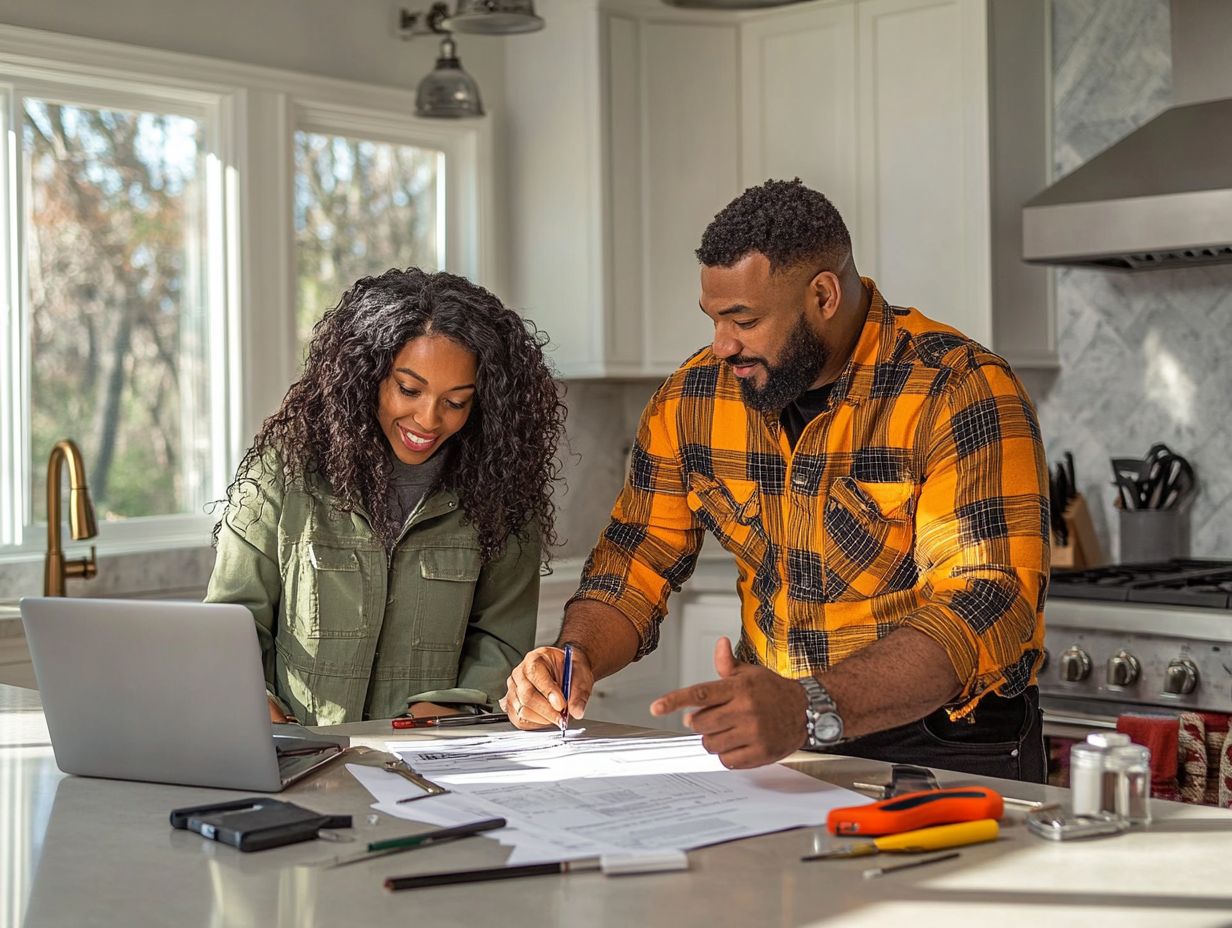
Preparing for a home inspection requires a clear grasp of the inspection process and ensuring that all pertinent resources are at your fingertips.
This allows real estate agents, buyers, and sellers to adeptly address client concerns and align expectations, creating a seamless experience for everyone involved.
What to Expect and How to Prepare
During a home inspection, you can expect a comprehensive evaluation of the property’s condition, including the identification of any safety hazards. This will help you set realistic expectations for the inspection process.
This assessment typically lasts between two to four hours, depending on the size and complexity of the home. Inspectors will meticulously examine critical areas such as the roof, plumbing, electrical systems, and foundation, ensuring that no detail goes unnoticed.
To ensure a smooth inspection, it’s beneficial for you to:
- Declutter spaces
- Make sure all utilities are operational
- Provide easy access to attics, basements, and crawlspaces
Understanding these steps not only prepares you for what s ahead but also alleviates concerns. This transforms the experience into a more manageable and less stressful one.
Questions to Ask Your Home Inspector
Asking the right questions during the inspection enables you, whether you’re a homeowner or a buyer, to gather crucial insights about the property.
This approach enhances your understanding and fosters a productive dialogue with the home inspector regarding any findings. Additionally, knowing how to follow up after a home inspection can help you get ready to uncover the secrets of your future home!
Important Information to Gather
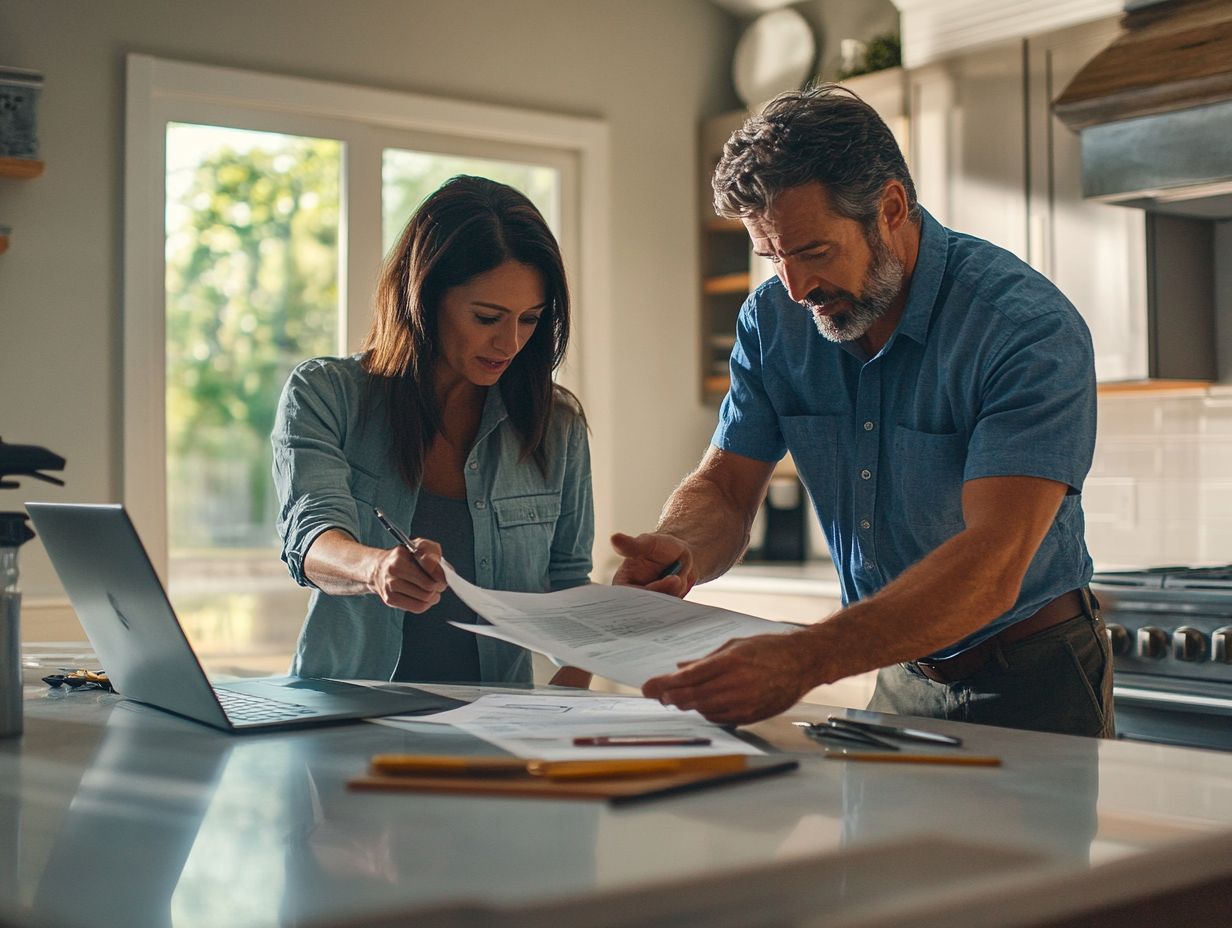
It s crucial for you to gather key information from the home inspector. This includes details from the inspection report and specific findings that will bolster your property negotiations. This information serves as the foundation for smart choices and can considerably influence your offers.
During the inspection, make sure to take notes and ask questions about any areas of concern. Focus on important areas like structure, electrical systems, and plumbing.
After the inspection, thoroughly reviewing the report is vital. Understanding the terminology and implications of each finding will enhance your communication with potential sellers or agents.
Engaging with the inspector addresses immediate concerns and helps establish a rapport. You might consider asking them key questions to gain deeper insights into the property’s condition.
Communicating During the Inspection
Effective communication during the home inspection is essential. Be sure to refer to how to communicate with your inspector to ensure that both you and the inspector have a clear understanding of the issues at hand.
This fosters a transparent environment that encourages your active engagement and interaction throughout the process.
How to Ask Questions and Provide Feedback
You should feel enabled to ask questions and provide feedback throughout the home inspection. This engagement ensures you fully understand the property’s condition and any potential safety hazards.
Opening a dialogue with the inspector builds trust and sheds light on important details that might otherwise go unnoticed. To enhance this communication, it’s helpful to know how to follow up with your home inspector. By voicing specific concerns or observations, you can gain deeper insights into areas of the home that may need closer scrutiny.
Adopting this proactive approach enhances your inspection experience and fosters clearer communication. This allows you to make informed decisions based on the expert’s findings.
The quality of your conversation will impact your understanding, ensuring you leave the inspection with confidence and clarity about your investment.
Addressing Concerns and Issues
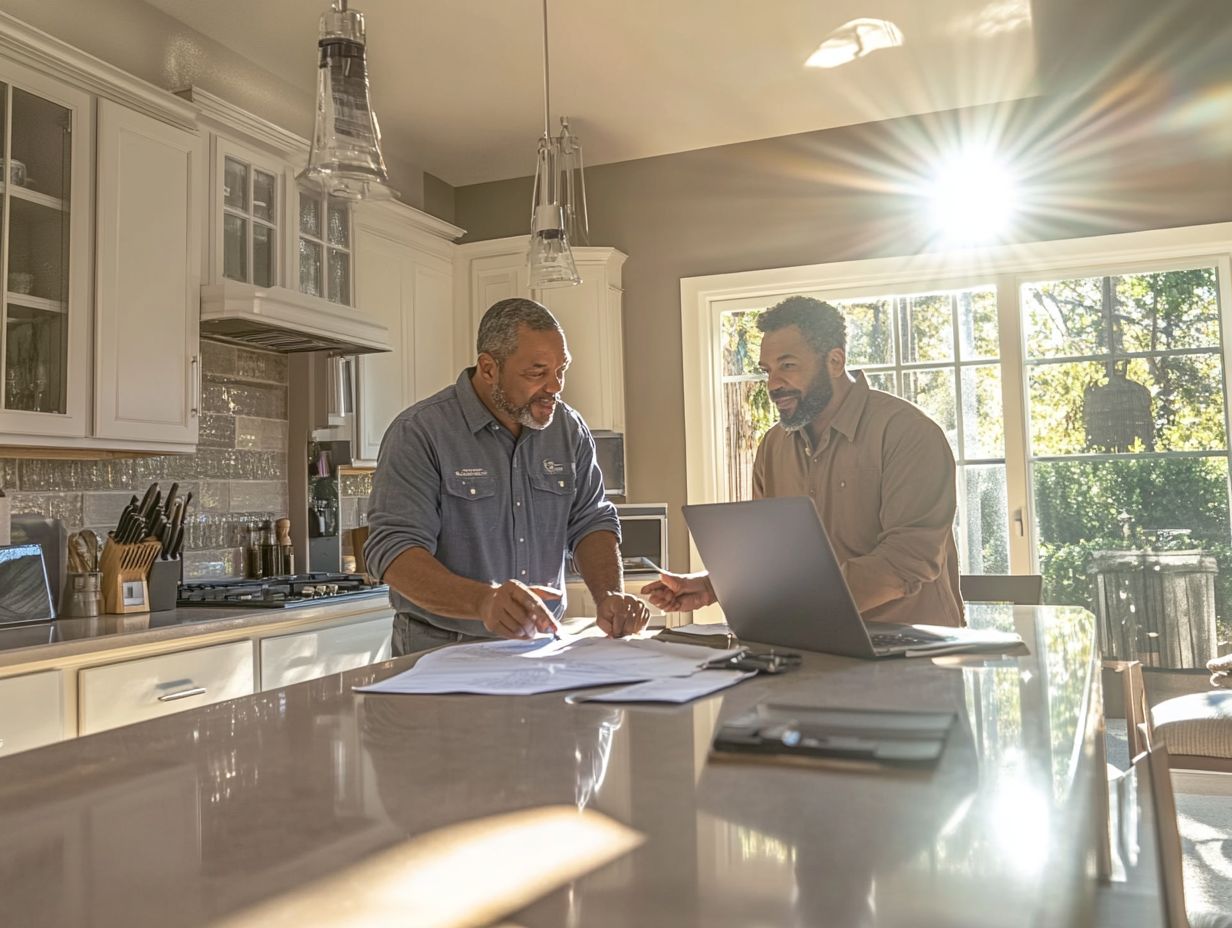
Addressing client concerns and potential issues during a home inspection is essential for effectively managing expectations.
This thoughtful approach ensures that any identified safety hazards are appropriately documented and handled in the inspection summary. It fosters trust and paves the way for a smoother inspection experience.
How to Handle Potential Problems
When you encounter potential issues highlighted during the home inspection, it s essential to assess the distinction between major and minor defects. Consider how these may affect your repair planning.
This careful evaluation helps you prioritize which issues to tackle first and illuminates the overall financial implications.
You can use this insight to engage in meaningful conversations with sellers or real estate agents, negotiating for necessary repairs or concessions.
By focusing on the crucial repairs identified in the inspection report, you can steer the discussion toward fair solutions that consider both the urgency and severity of the findings.
In doing so, you enable yourself to make informed choices that align with your long-term goals as a homeowner.
Following Up After the Inspection
Following up after your home inspection is essential! It determines your next steps.
Use the home inspection report as your roadmap! Pair it with additional resources to make the best decisions in today s market.
This approach will enable you to make informed decisions moving forward.
Next Steps and Resources
After going through your home inspection report, it s crucial to determine your next steps. Consider resources that can enhance your understanding and make the process smoother with real estate agents.
Start by addressing any necessary repairs mentioned in the inspection. These can range from small fixes to major renovations.
Negotiate with sellers to reach a fair agreement regarding these repairs. You can also ask for price reductions if significant issues were discovered.
Consult experts like contractors or structural engineers for valuable insights into the inspection findings. This helps you make informed decisions.
Using these resources clarifies your situation and boosts your confidence during this journey. It can lead to a more satisfying outcome.
Frequently Asked Questions
What should I ask my home inspector during the inspection?
Ask your home inspector any questions about the property. Common questions include: What is the overall condition of the home? Are there any major issues? To ensure you are well-informed, refer to this guide on how to prepare for your home inspection. How urgent are needed repairs?
How can I effectively communicate with my home inspector during the inspection?
Communicate clearly with your home inspector by following tips on how to communicate. Ask questions as they arise, and request further explanation if needed. Taking notes and pictures can also be beneficial.
What should I do if I don’t understand something my home inspector is saying?
If anything is unclear, ask for clarification. A good inspector will explain things in simple terms to ensure you understand everything.
How can I prepare for communicating with my home inspector?
Before the inspection, list any questions or concerns you have. Gather any documents that might help the inspector.
Can I attend the home inspection and communicate directly with the inspector?
It’s a good idea to attend the inspection and talk with the inspector. This allows you to ask questions and understand any issues found. If you can’t attend, you can always reach out via phone or email for more details on how to prepare for a home inspection.
What should I do if I have additional questions after the home inspection?
If you still have questions after the inspection, reach out to your home inspector. They are there to help you understand the property and can provide further guidance on making the most of your home inspection.

